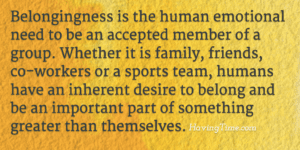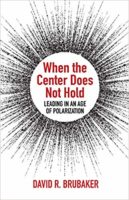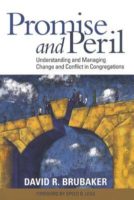
Meaning-making and belonging are core human needs. For parents and others who care about children’s future, another urgent need is to pass along our values to the young. While not every congregation excels at meeting all three of these needs, nearly every congregation tries. How can congregations respond to those needs both for their members and for those who are now looking elsewhere?
If we ask congregational members why they participate in congregational life, the answers often resemble one of the following:
- “I appreciate the worship service in this congregation.”
- “I come because of the people that are here.”
- “It’s important to me that my children are raised with the values of this community.”
Three core functions
These three responses reflect the three core functions of a religious congregation, regardless of the tradition to which it adheres:
- Meaning making. Religious congregations provide a coherent worldview that invites members into a story that is larger than even the congregation or tradition of which they are a part.
- Belonging. According to Robert Putnam in Bowling Alone (2000), religious congregations in the U.S. assemble more people on a weekly basis than any other type of voluntary association. Congregations offer established relational networks that, if permeable, invite visitors to affiliate with others and build meaningful relationships.
- Values Transmission. Every religious congregation either draws on some tradition with established beliefs and practices or is in the process of creating their own. Those members with children often desire to see the values that are embedded in these beliefs and practices passed on to their progeny.
Meaning-making, belonging, and values transmission are nearly universal human needs that congregations have traditionally met. But in recent decades, the “nones” (those who profess no religious affiliation) have come to comprise nearly a quarter of American adults—equal to the percentage of both Roman Catholics or professed evangelicals. How do “nones” meet these needs
Ways of Making Meaning
I recently posed that question to four Millennials and Gen Xers. Two, both single, are self-described “nones.” Two, both married with children, are active in a local congregation but also find meaning and belonging beyond their local congregation. I received the following responses:
“I find meaning in my work…, my volunteer organizations, and by working to make myself a better person through reflection, education, and counseling. My social connections come from my close friends and family. Sunday is typically “friends brunch day,” but I’m typically doing something with friends or family nearly every weekend. I also find community through my work colleagues, reading, TV, movies, current events, and my dog. Enjoying nature on a regular basis also keeps me grounded and connected, as does working with my hands in the kitchen or garden. Community and meaning, like God, are all around us.”
“Live music creates a lot of community and meaning. Dedicated Red Wing Roots festivalgoers feel very connected to the beauty of Natural Chimneys and the people they know they will see every year. Well-written music connects us through our common human experience. I often hear people talking about listening to live music and having a ‘spiritual’ experience with the people around them. Most of the house concerts we go to are potlucks and create community around sharing food. I have seen the music community take care of each other in a way that you would expect from a church after tragedy.”
“This coming February, I’m heading to the Movies and Meaning Festival in Asheville, North Carolina. To add to what’s already been said of experiences of shared food and participation in arts events, communal viewing of and conversation around film is a catalyst for meaning-making and network-building. I don’t necessarily identify as a ‘none,’ but I’ve certainly wrestled with the identity marker of ‘Christian,’ and, more specifically, of [my denominational tradition].”
“For me it’s usually through a combination of my work and my friends…. I think I’ve gotten pieces of inspiration, consolation and accountability from many communities I’ve been part of or still am … dance classes and facilitator groups and anti-racism groups … And then there’s the long serious talks about right livelihood and love in public with friends, family, etc…. I do think I long for a more consolidated or comprehensive spiritual theology or group, but at the same time I think it would be hard for me to feel totally confident in one…. I mostly want to build genuine relationships with my neighbors….”
What’s a Congregation to Do?
What we notice in each of these four vignettes is that individuals with particular passions are connecting with others who share those (often artistic) passions—whether nature, music, movies, or dance. A large congregation may be able to offer specialty groups that bring together people with such diverse shared passions, but the great majority will struggle to do so. How might the average congregation respond to the need for meaning and belonging?
First, keep in mind that meaning making (making sense of what often seems to be a senseless world) is a core need of those who attend our congregations. However, this does not mean supplying facile answers to difficult questions. Rather, it points to the need to help individuals locate themselves in the context of a larger, and more meaningful, story. One way to do so is to narrate a larger story and then pose a question that assists members in locating themselves. After a recent sermon on faith, the pastor of my congregation invited members to respond to the question, “When in your life did you take a leap of faith, and what was the result?” The answers were profound.
Second, remember that while the need for belonging is universal, the specific reasons for wanting to affiliate are as unique as each human being. Although the average congregation is unable to offer dozens of interest groups reflecting multiple passions, it can invite members to share those gifts with others in the congregation. This might include an offer to lead a nature hike on a Sunday afternoon, share a musical gift in a Sabbath service, or perform a liturgical dance. The goal is not to replicate the interest groups that exist in every sizeable community, but rather to welcome the expression of gifts and passions in the life of the congregation.
Congregations can be vital locations for meaning making, belonging, and values transmission. They are not, however, the only place. The ability of congregational leaders to strengthen meaning making, opportunities for belonging, and explicit values transmission are key to a successful congregation. Yet so is welcoming the experiences and learnings of those who are also finding such things outside of the congregation.
David Brubaker has consulted with organizations and congregations in the U.S. and a dozen other countries on organizational development and conflict transformation. He is the author of Promise and Peril, on managing change and conflict in congregations, and When the Center Does Not Hold, on leading in an age of polarization. David serves as Dean of the School of Social Sciences and Professions at Eastern Mennonite University and is a professor of organizational studies.


